Day chair: Ferdinand Cornelissen
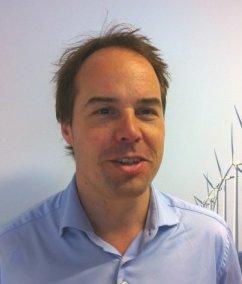
Ferdinand Cornelissen (1974) studied Cognitive Artificial Intelligence at Utrecht University. In 1999, after finishing his studies, he started as a software engineer at the former company Origin, applying models and simulations in the development of complex systems in the space industry. The following five years he developed this further at the research centre of the European Space Agency (ESA). After this he, besides being a system architect at various projects dedicated to developing software in the space and transport industries, put his knowledge and expertise to use in extending a competence team in the field of simulation, first at the company Atos Origin and next at Nspyre, a service provider in the field of technical computerisation. Recently Ferdinand Cornelissen was appointed Technology Officer of Nspyre. In that role he is responsible for the technological strategic course Nspyre will follow in coming years.
Prof. dr. Pieter Adriaans
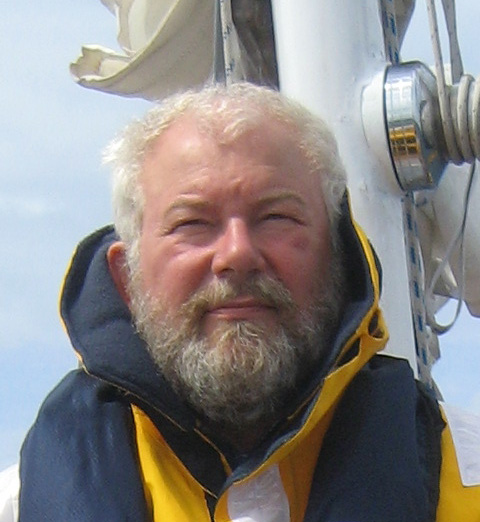
Pieter Adriaans (1955) studied philosophy at Leiden University. At the end of the seventies he unlocked the philosophical heritage of the Dutch philosophical poet Johan Andreas Dèr Mouw (1863-1919). In the eighties he held several management positions at different firms such as Grote Beer Software, Compu-Train and Info-Products. In 1989 he started Syllogic, a company that rapidly developed as specialist in the area of artificial intelligence, datamining and self-learning systems, together with Dolf Zantinge. In 1992 Adriaans promoted at the University of Amsterdam under Peter van Emde Boas on the subject of automatic learning of grammars. In 1997, when Syllogic was sold to Perot Systems, the company had been established in the Netherlands, Ireland, England and the USA. In 1997 Adriaans also got named exceptional professor learning and adaptive systems. In 2005 this was changed to a regular appointment. From 1997 onwards to 2000 Adriaans was projectleader of the Dutch Prognostic and Health Management (PHM) Consortium of the Joint Strike Fighter project. During this time he also developed the Robosail project with a team of specialists and students of the University of Amsterdam. This project entailed the construction of a self-learning competitiveyacht. With varying degrees of succes he sailed with this boat from 2000 to 2005 and also made several solo expeditions to, amongst other destinations, the Azores. Beginning in 2004 til 2009 he was chairman of the board of the Centre for Mathematics and Computer Science(CWI). Within the VI-e project his group developed the AIDA e-science toolkit, a project with great international renown. At the beginning of 2008 he resigned from most public functions due to a TIA. He is still a member of the AWT and he is the head of the AIM(Adaptive Information Management) group at the institute for computer science at the UvA. Adriaans has a number of patents and is (co-)author of many books and articles: among which a very succesful introduction to data mining co-authored with Dolf Zantinge in 1995. Recentl he was an editor with Johan van Benthem of the "Handbook of Philosophy of Information". His interests are applying the insight of algorithmic complexity theory to practical problems in the learning theory. A part of the year he lives with his wife Rini on the Azores where he devotes himself to science, the art of painting and music.
Prof. dr. Jaap van den Herik
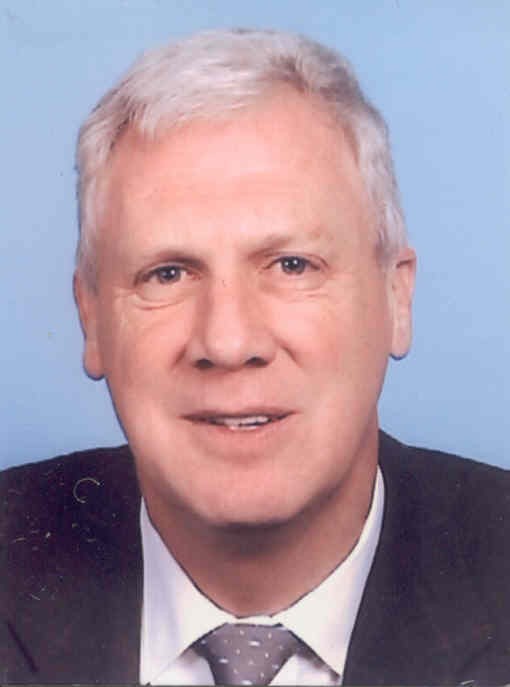
Jaap van den Herik is Professor of Computer Science at Tilburg University, Tilburg, The Netherlands and Professor of Law and Computer Science at the Faculty of Law of the Universiteit Leiden, Leiden, The Netherlands. As Scientific Director of TiCC (Tilburg centre for Creative Computing) he was able to attract many talented researchers. He was supervisor of 60 Ph.D. researchers.
His research interests are: computer games, serious games, adaptive agents, neural networks, information retrieval, and intelligent systems for law applications.
At the moment he is
- Editor-in-Chief of the ICGA Journal;
- Associate Editor of the Entertainment Computing Journal;
- Member of the TCS Editorial Board;
- Member of the Editorial Board of the Data and Knowledge Engineering Journal; and
- Member of the Editorial Board of the BNVKI newsletter.
- Editor of the Computer and Games LNCS series and the Advances in Computer Games in the LNCS series and Advances in Computer Chess.
- Van den Herik is member of many steering and advisory boards. Furthermore he is member of the Royal Holland Society of Sciences and Humanities (since 1999) and fellow of the European Coordinating Committee for AI (ECCAI).
Dr. Hendrik Jan Hoogeboom
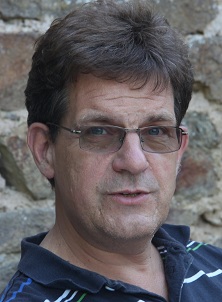
Hendrik Jan Hoogeboom (1959) promoted on a subject in theoretical computer science at the University of Leiden and currently works there as a researcher. He publishes in the fields of mathematicalmodels and algorithms. Both subjects often touch upon natural computing, where inspiration or application is drawn from nature. His other interests are the theory of Tetris and the challenges with reconstructing pedigrees automatically.
Bennie Mols
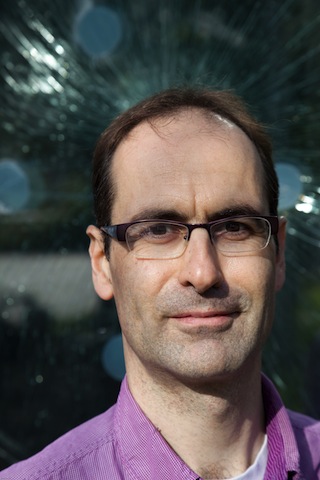
© Bert Nienhuis
Bennie Mols (1969) studied technical physics at the TU Eindhoven and promoted in the field of physics at the TU Delft. He also graduated philosophy at the University of Amsterdam. Since 1999 he has been working as a science journalist and author. He writes, amongst others, for the NRC Handelsblad, KIJK, NWT Magazine and De Ingenieur. He published populair-science books about physics(Doos van licht, lucht en liefde, 2005), mathematics (Opgelost, 2006), computer science (Omringd door informatica, 2009) and brain research (Geestdrift, 2009). He is on the regular panel of the science café of the friday NTR-radioprogram Hoe?Zo! and editor of the tv-program BreinGeheim of Omroep MAX (broadcasted in april/may of 2012).
Prof. dr. ir. Anton Nijholt
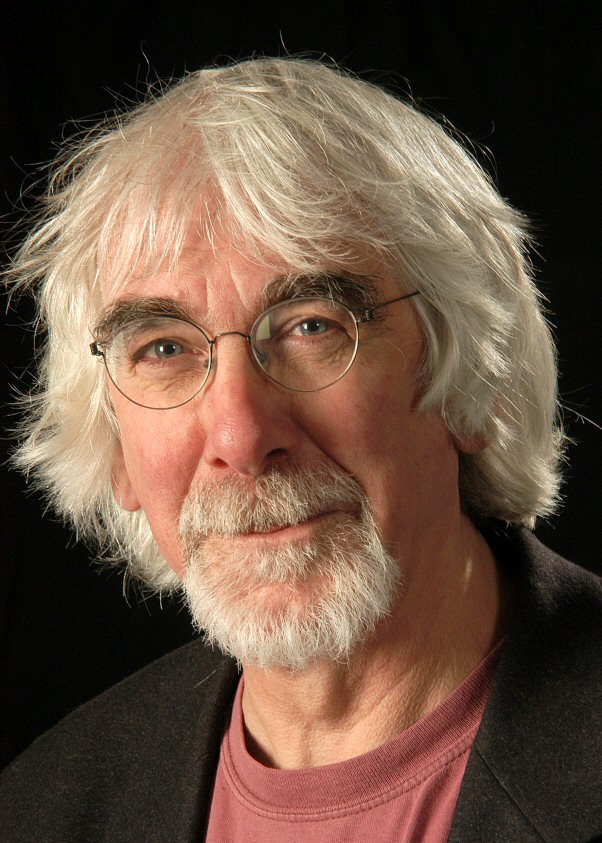
Anton Nijholt (1946) studied mathematics and computer science at the Technical Academy Delft and promoted in theoretical computer science in 1989 at the Free University Amsterdam, VU. After appointments in Hamilton, Nijmegen, Enschede and Brussel he returned as professor to the TU Twente in Enschede. There he started the researchgroup Human Media Interaction with regards to the following areas: multimodal interaction, brain-computer interaction, entertainment computing and multimedia retrieval. A sabbatical was spent at the NIAS (Netherlands Institute for Advanced Study in the Humanities and Social Sciences) and during several years he was advisor of Philips Research. Nijholt has authored books pertaining to the history of computers, with a lot of focus on the role played by Alan Turing, and on the area of computers and language. Recently several publications have been made about the brain-computer interfacing for games. In 2012 Nijholt wil organise, chair and program chair several big internation conferences on the subject of 'social computing' and multimodal interaction.
Prof. dr. Ronald de Wolf
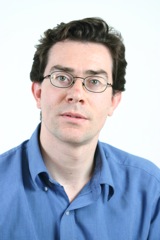
Ronald de Wolf (1973) studied computing science and philosophy in Rotterdam and promoted in 2001 at the University of Amsterdam on the (then still very recent) subject of quantum computers, under the tutelage of Harry Buhrman and Paul Vitanyi. After a period as a postdoc researcher at Berkeley (California) he now retains a position as researcher in the field of theoretical computer science and quantum computing at the Centre for Mathematics and Computer Science (CWI) in Amsterdam. Aside from that he still has a part-time position as professor at the Institute for Logic, Language and Computation (ILLC) of the University of Amsterdam.






